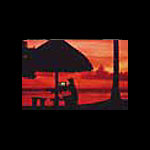 Home
News, and the latest updates.
Archives
Stories from the past...
Submit News
Got a item of interest? Here's the place to go.
Feedback
Your opinion always counts on how we can make GameSurge
even better.
Mailbag
Comments on our features, by you, the viewers. | 
Hardware
Tweaks, reviews and a handy driver index highlight our newest section
Reviews
Looking to buy one of the hottest games? We have it covered.
Previews
Get a advanced look at the games of tomorrow.
Interviews
Find out more about the people behind your favorite game.
Strategy
Need Help? We have a very large selection of walkthroughs now up.
Gallery
A special section featuring the best in artwork and
images. |

Editorials
The written word, by staff and viewers.
Game Guy
A bi-monthly column contributed by Mark H Walker, an independant writer in the Gaming community.
Gallery
Pictures from around the web.
Hosting
Our current hosting plans and features.
Site Information
Who we are, what we do, our policies and job positions.
|


PlayStation
The Sony PlayStation, and beyond...
Nintendo 64
Currently Down.
Dreamcast
The Dreamcast resource, and more. Home of the DC Technical pages. |
|
The Game Guy
By Mark H. Walker
The Writing is on the Wall
No doubt many are girding their gaming loins for the alleged console
wars; passionately debating the ultimate winner, be it Microsoft, Sony,
or Nintendo. Not me, folks. The war is already won. Yeah, will see some
hot skirmishes, and the fighting will keep software prices down, but the
victor isnít debatable. By 2003 Sony will be the last console giant standing.
The X-box will have some strong titles, but will lack the breadth and
depth of Sonyís offerings. Their effort will be crippled by poor publishing
choices, which in turn can be linked to a lack of industry experience.
On the other hand, Nintendo knows how to crank out the hits, but not
the volume. The Perfect Darks of the world have proven that Nintendo knows
how to publish a winner, but history shows that Sony out-publishes Nintendo
by four games to one. You donít win console wars like that.
Donít believe in Sonyís dominance? Chew on these tidbits:
· According to PlayDate 2001, twenty-five United States retail
chains were polled on potential Christmas sales. They said PlayStation
2 would be the best selling system, and Metal Gear Solid 2 the best game.
Thatís from the folks who put the stuff on the shelves.
· Cahnerís In-Stat Group reports that PlayStation 2 and PlayStation
were the top selling consoles for 2000. No surprise there. What is surprising
is that despite the X-Box and GameCubeís launch, In-Stat predicts that
Sony will repeat the feat in 2001. Thatís impressive.
Be Wary of Journalists Bearing Praise
Once again, itís that time of year. Most sites and magazines will soon
publish their holiday season shopping guides, and within a couple more
months their ďbest of the yearĒ lists. No one wants to blow their hard-earned
gaming dollar on a dog, so the lists are a welcome, but be wary of journalists
bearing praise. We could be, and in fact often are, wrong.
Face it; even the most dedicated gaming journalist canít play every
game, or even every game within his or her particular genre of expertise.
Hence, writers rely not only on personal experience, but reviews read,
discussions with other journalists, and overall gaming buzz. Thereís nothing
evil about the approach. It normally yields a shopping or ďbest ofĒ list
that includes the industryís notable games. Unfortunately we can also miss
obscure titles that are every bit as good as, but less well promoted than,
a publisherís front-line products. So take our lists with a grain of salt.
Better still, ask your friends what theyíre playing, download a couple
of demos, and talk to the kid behind the counter at EBWorld. In other words,
make up your own mind.
Tight Takes
Operation Flashpoint. Okay, Iím a bit behind the rest of the gaming
world on this one. For a few months gamers have declared Flashpoint the
cure to all that ails you. And you know what? They may just be right. To
borrow an ancient phrase, the game is simple to learn, but difficult to
master.
For those of you waking from a long slumber, Operation Flashpoint is
a squad-based tactical shooter based in a fictional, 1985 war between the
United States and the Soviet Union. The game throws the player into the
shoes of a gun-toting private, squad-leading sergeant, tank commander or
chopper pilot. The graphics are lush, and the battles are realistic, creative,
and intense.
But what Flashpoint does the best is throw you into a new world. You
are not the focus of each battle. The fighting swells without you, tanks
explode, squadmates die, and friendly forces capture objectives. Meanwhile
you desperately hunt for your squad leader, try to keep up with your buddies,
and take pot shots at the distant enemy. Itís like living the best chapters
of a Harold Coyle military adventure. This is war --crazy, unpredictable,
and frighteningóand Flashpoint portrays it brilliantly. If this isnít game
of the year material, I donít know what is.
Then again, you should be careful of journalists bearing praise.

© Mark H. Walker, LLC 2001
Mark H. Walker is a veteran interactive entertainment journalist who has written over 40 books including his recently released Video Games Almanac and The Parentís Guide to PlayStation Games.
|
 |
|
|
Zalman: ZM-DS4F Headphones
|
An affordable, ultra-portable headphone set.
 more more
|
|
